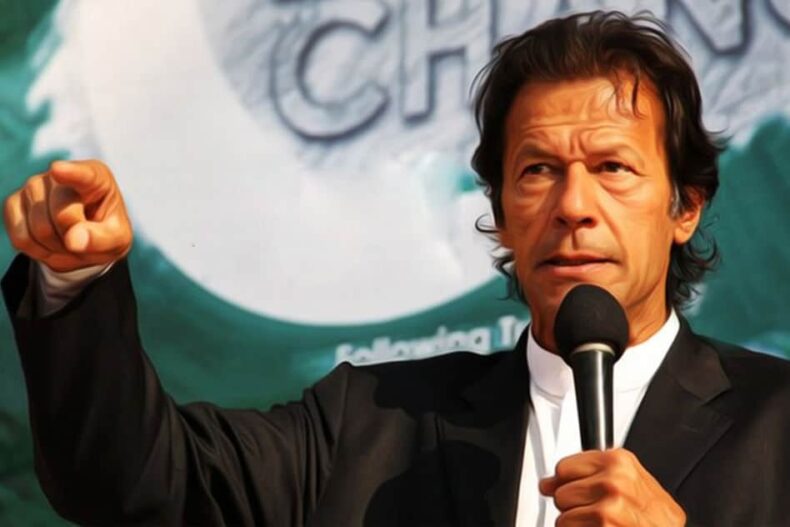It has been reported that Pakistan’s Election Commission disqualified the former country’s Prime Minister Imran Khan for five years. The decision came on October 21 when a 4 member bench announced the verdict against Imran Khan at the ECP Secretariat in Islamabad.

The Toshakhana controversy
The move, after which the Pakistan Tehreek-e-Insaf party (PTI) chairman cannot be a member of the Parliament for five years is related to the Toshakhana case.
The Toshakhana event came up last year as it was alleged that Mr. Khan and his wife had received gifts from foreign dignitaries and were involved in hiding proceeds from the sale of gifts that he purchased from the state repository, called Toshakhana and later sold them in the market at discounted rates.
The Toshakhana, which literally means a ‘treasure house’, was established in 1974 as a department under the administrative control of the Cabinet Division and looks after precious gifts presented to rulers, bureaucrats, parliamentarians, and other official heads of government.
PTI’S Response against the EC
The Election Commission of Pakistan (ECP) was looking into the case filed by the ruling coalition government lawmakers, particularly by a member of the Pakistan Muslim League Nawaz (PMLN), and concluded its proceedings on Friday.
The ECP bench was headed by Sikander Sultan Raja, the Chief Election Commissioner and it finally declared that Mr. Khan was engaged in corrupt practices and that some action would be taken against him under the corrupt practices laws.
In rejection of the verdict, the supporters from Khan’s PTI party like Asad Umar and Fawad Chaudhry announced that the decision would be challenged in the Islamabad High Court and the mandate would be collectively protested. Faisal, part of the PTI’s legal team, also insisted that they planned to question the commission’s scope to deliver such a verdict.
Imran Khan and political dynamics

The cricketer-turned-politician was ousted from office after he lost a no-confidence vote in the National Assembly. Khan, who has been holding rallies across the country to garner more support, has accused the commission of bias against him and his party.
His popularity and huge following bore fruits as the PTI defeated the ruling party in the Punjab by-poll elections which took place in July and October.
However, as charges pose a challenge to Khan’s image and accuse him of selling state gifts unlawfully, the critics are also far from being silent. The country’s foreign minister, and the current chairman of the Pakistan People’s Party, Bilawal Bhutto Zardari welcomed the decision by the Election Commission through a tweet on Friday.
The 70-year-old Imran Khan took to power in August 2018 and had apparently misused his office authority by taking expensive gifts from rich Arab leaders and using relevant laws to make sizable profits. The purchase and sale of the materials were moved past legally in contrast to the high moral picture painted by the current leaders. The gifts, among others from the list, included a Graff wristwatch, a ring, a costly pen, four Rolex watches, and a pair of cufflinks.
During the unfolding of the hearing in September, the former premier Imran Khan had admitted that the sale of the gifts that he had procured from the state treasury after paying 21.56 million rupees brought in about 58 million rupees.
His political opponents stated that Mr. Khan failed to show the sales in the income tax returns, making him liable for inquiries.
Under the existing laws of the country, government officials must announce all gifts they receive at the end of the financial year but are personally allowed to keep those below a certain fixed value. The reference case probing with the ECP sought to invoke Articles 62 and 63 of the Constitution which suggests disqualification from contesting elections if someone is morally not truthful.
It can be said that this decision showcases various dimensions of current political leaders and their public dealings. Raising suspects over his disqualification, Khan could also be possibly imprisoned for three years if found guilty of corrupt practices in a trial court.












